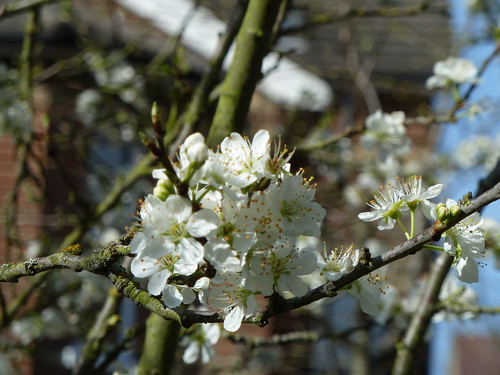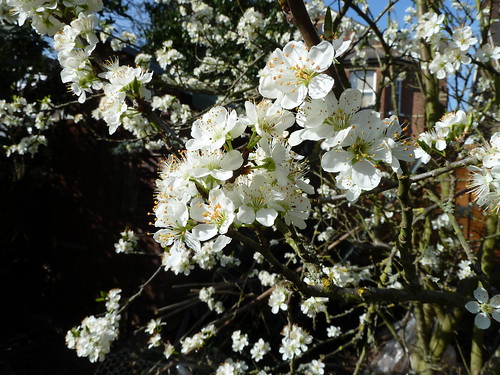Squeezing in with only hours of April left to go, I'm so very organised. This month's book was The Odd Women by
George Gissing, which I downloaded from
Project Gutenberg. Published in 1893 it is what you might describe as a progressive novel about the place of women in society, particularly the middle class women who did not marry. These women were often left in penury with teaching or being a governess the only respectable options for employment, professions for which they were often little suited because they had little education. Gissing took his title from the
population statistics which showed there were around 900,000 more women than men, so inevitably there were going to be an excess of unmarried women. He uses the novel to rail against the poor education and opportunities available to unmarried middle class women and to argue that all women should be brought up and educated so that they could have a career meaning that if they married they would be better wives and if they did not they would have a means of supporting themselves. The typewriter is seen as one means of freeing these women from low paid, uncongenial work and two of the main characters are unmarried ladies pioneering the life that is available to unmarried women and training other women in office work. They appear to see their mission in a similar manner to those rescuing women from prostitution and I think Gissing is suggesting that it is as important a mission.

On the whole this is a rigorous novel of ideas, vividly debated between its protagonists and demonstrated through the lives of the various characters, not one of whom is free of what George Orwell calls "self-torture that goes by the name of respectability". However, some of the more emotional passages seem rather overblown to modern eyes and are very much of their period, but this does not detract from the interest of the novel and its ideas. Gissing's view of marriage, as something to be avoided is surprisingly radical for the period and he also discusses ideas of free and equal unions between men and women instead of conventional marriage, something along the lines of "common law marriage" or today's co-habitation. To some extent this reflects George Gissing's own complicated personal life.
Lithograph of George Gissing by Sir William Rothenstein, 1897
My reading lately has been of books that address this theme of a woman's place and the place of "respectable" unmarried women in society and their poverty, it is one that preoccupies many novelists at least from Jane Austen onwards (although I am sure it predates her) and right on into the 1950s when Doris Lessing's
The Golden Notebook, which I have only just started, appears to be asking what place do unmarried women have in society. In between I have read a short novel by E M Delafield,
Thank Heaven Fasting, about a débutante of the Edwardian period who "could never, looking backwards, remember a time when she had not known that a woman's failure or success in life depended entirely upon whether or not she succeeded in getting a husband". This novel showed a society in which a woman only had a status in relation to a man, a daughter, a fiancée, a wife, a mother, a widow and of these "wife" was far and above the most important status. The débutante is treated as a child and her mother's emotional collapse upon her father's death shows how far her status is affected.
Anyhow, I shall continue with my feminist reading into May and continue through The Golden Notebook, which I have on an audio-book, making it ideal for listening to while knitting. Perhaps that will be next month's book and perhaps I shall write about it before the evening of the last day of the month!










